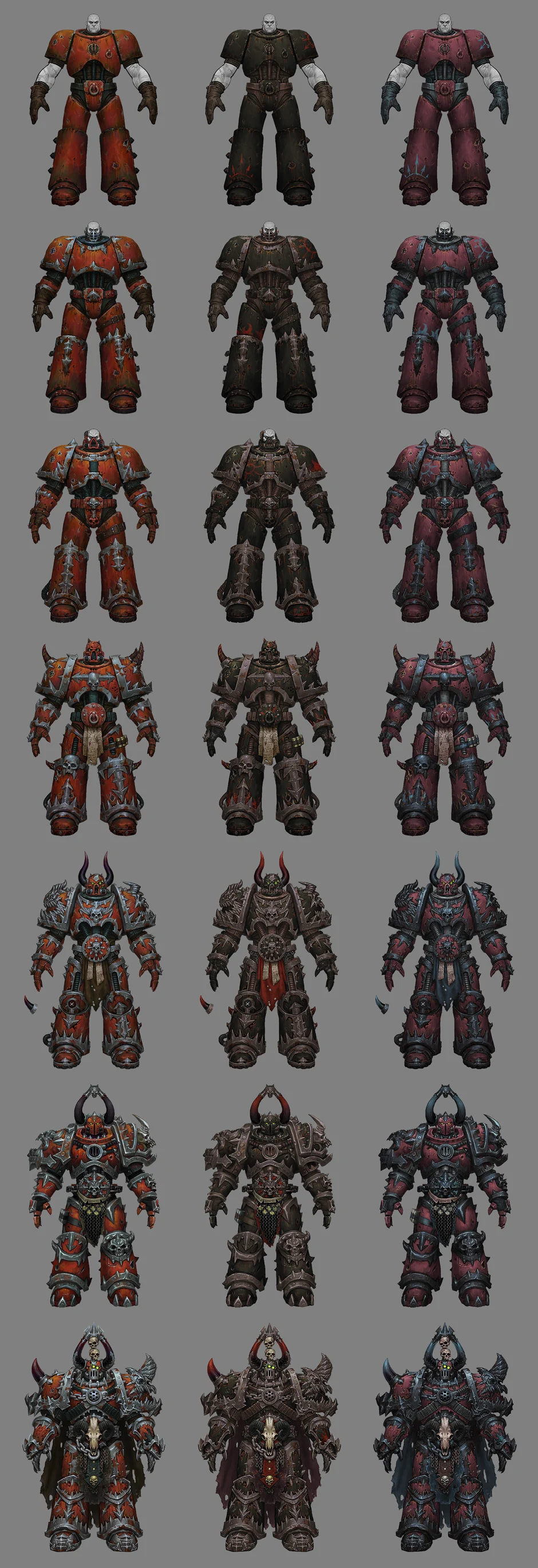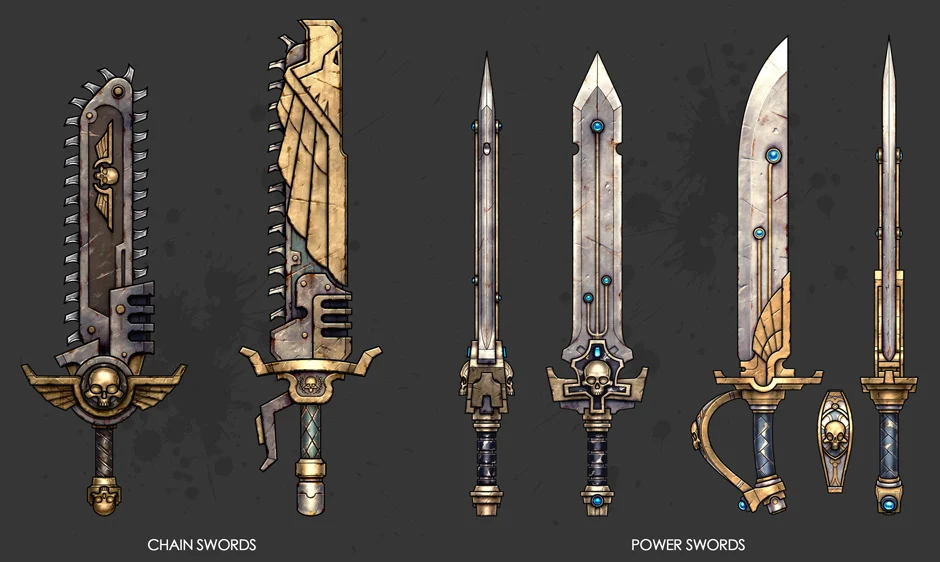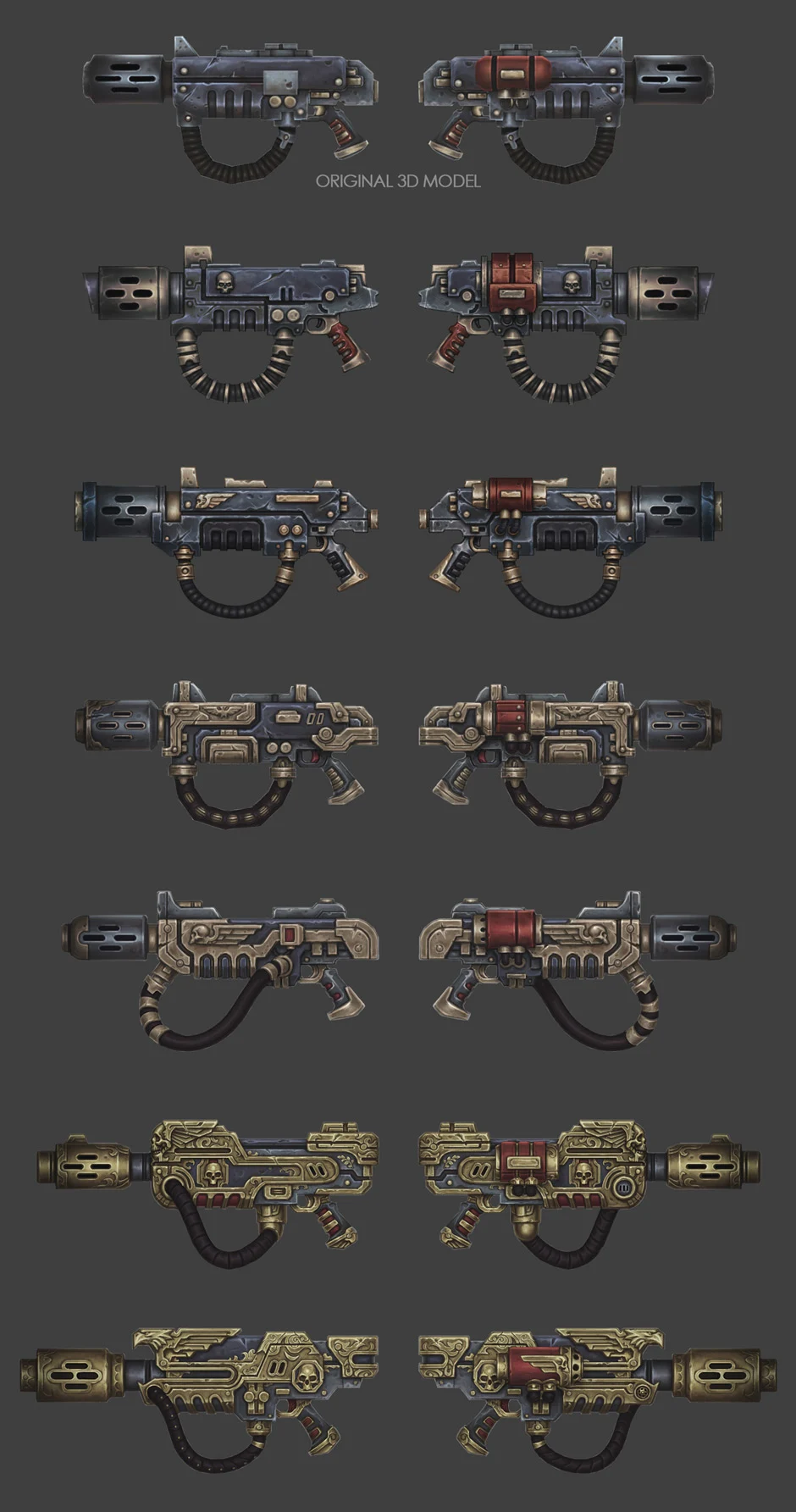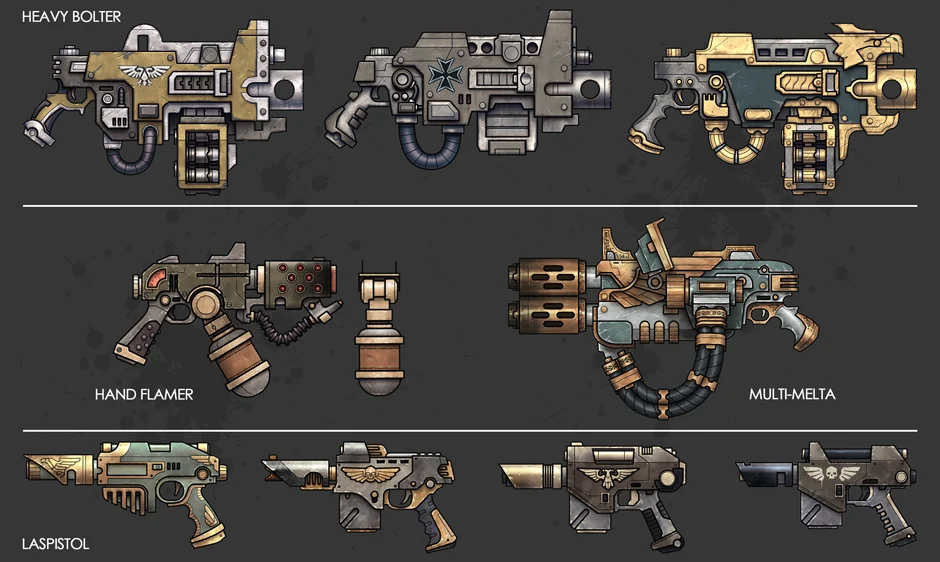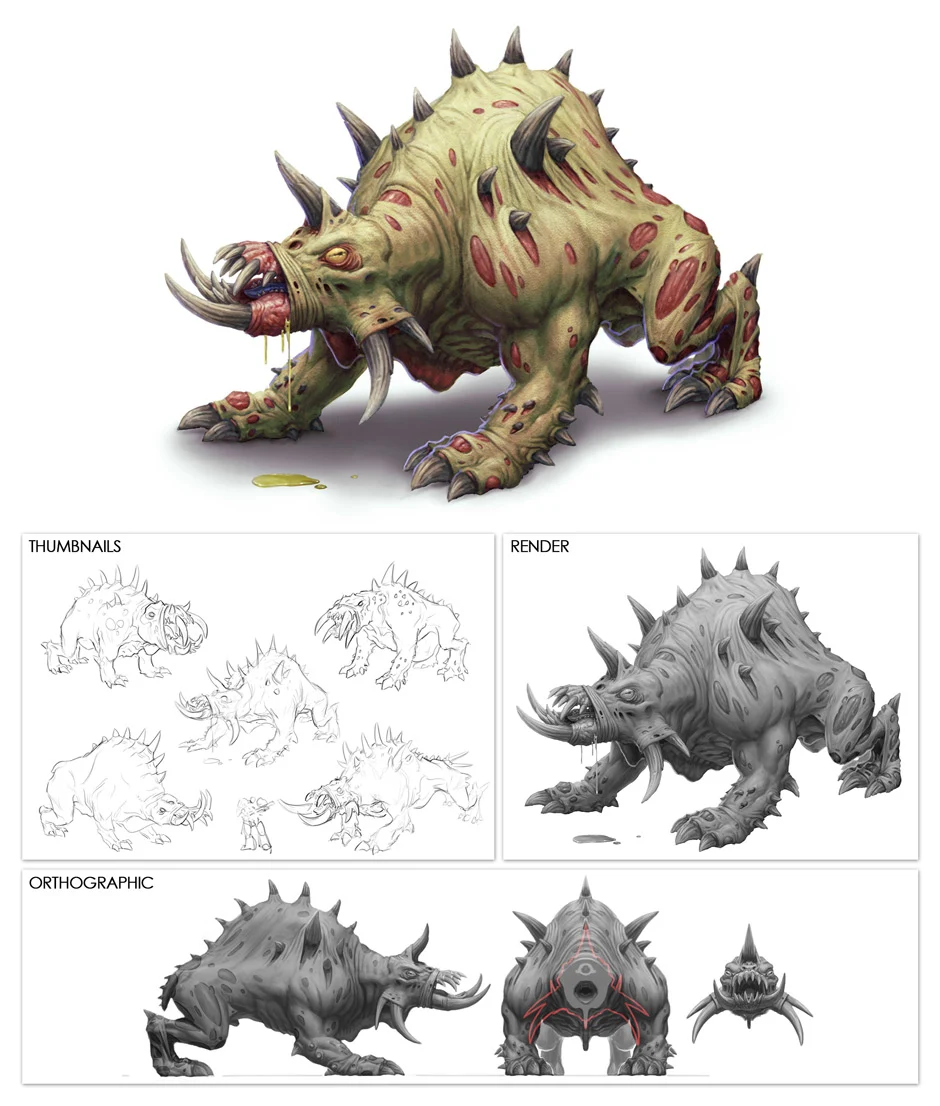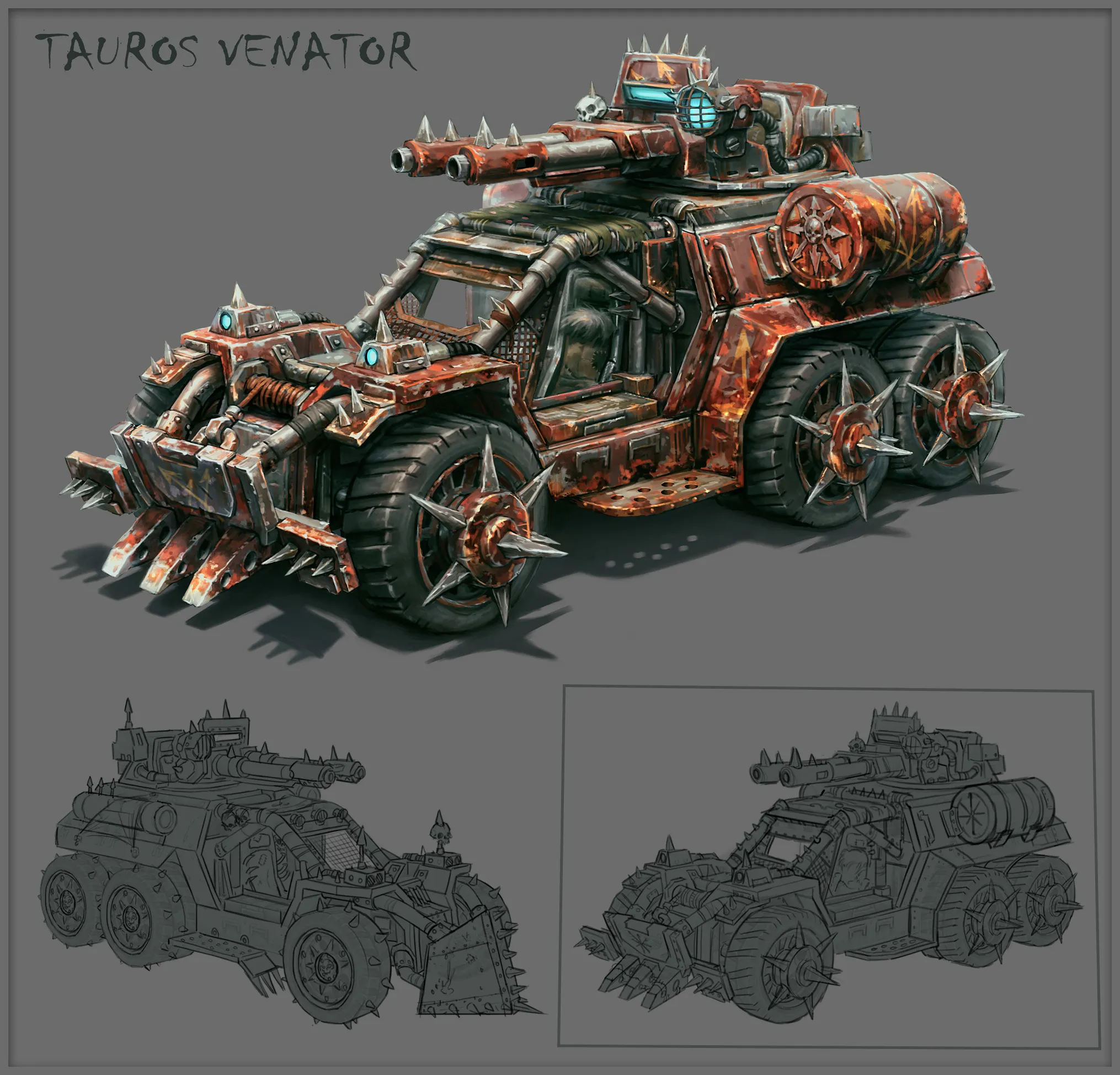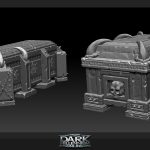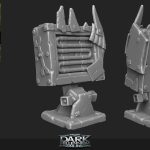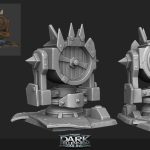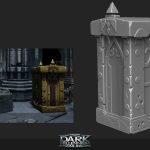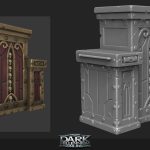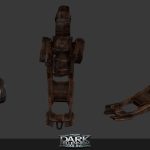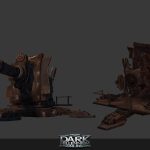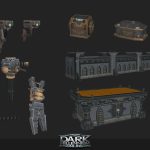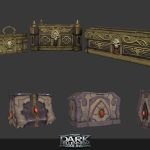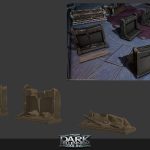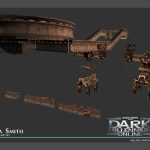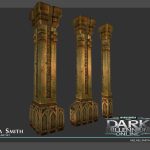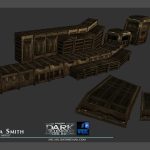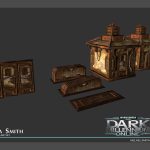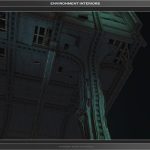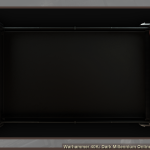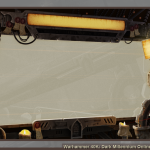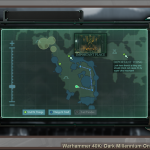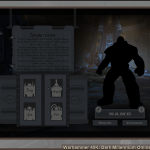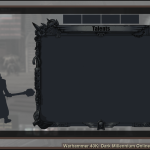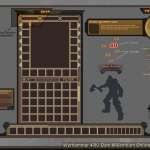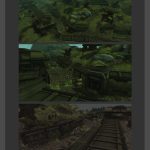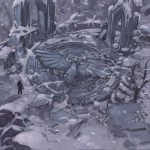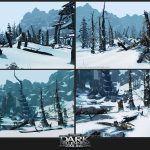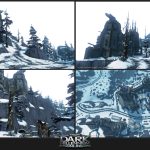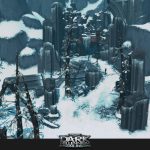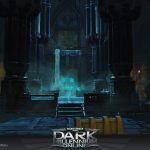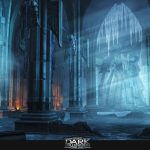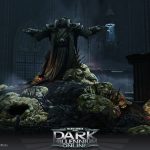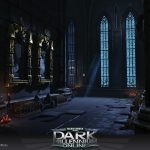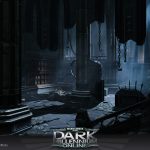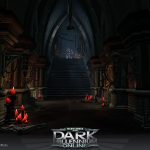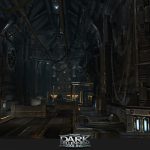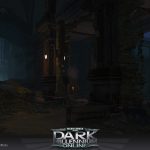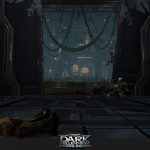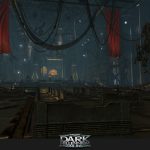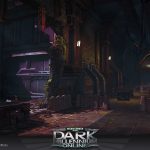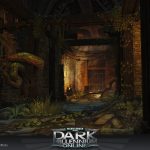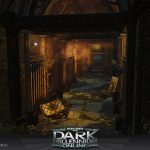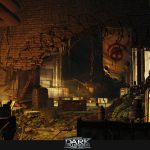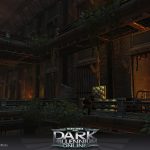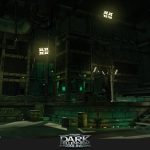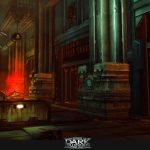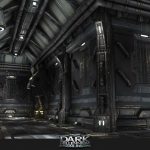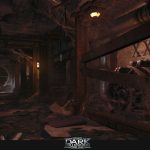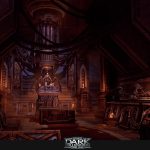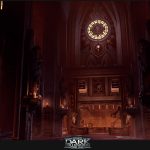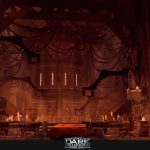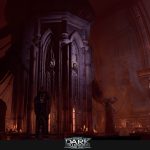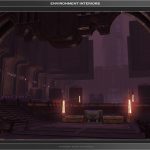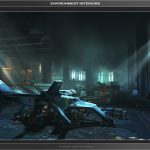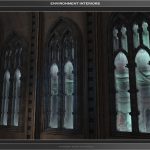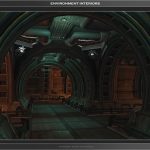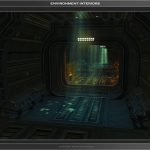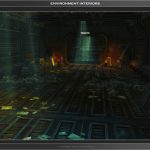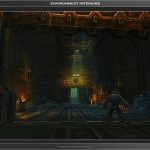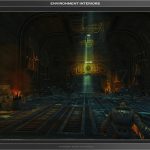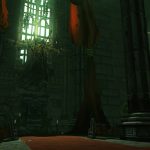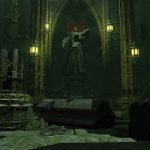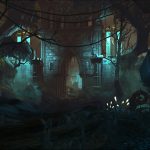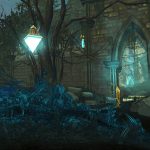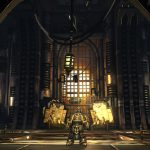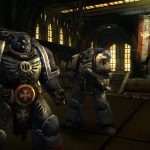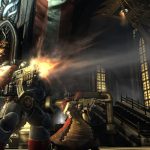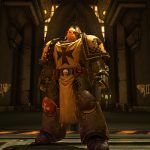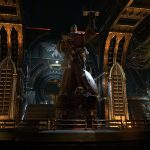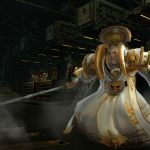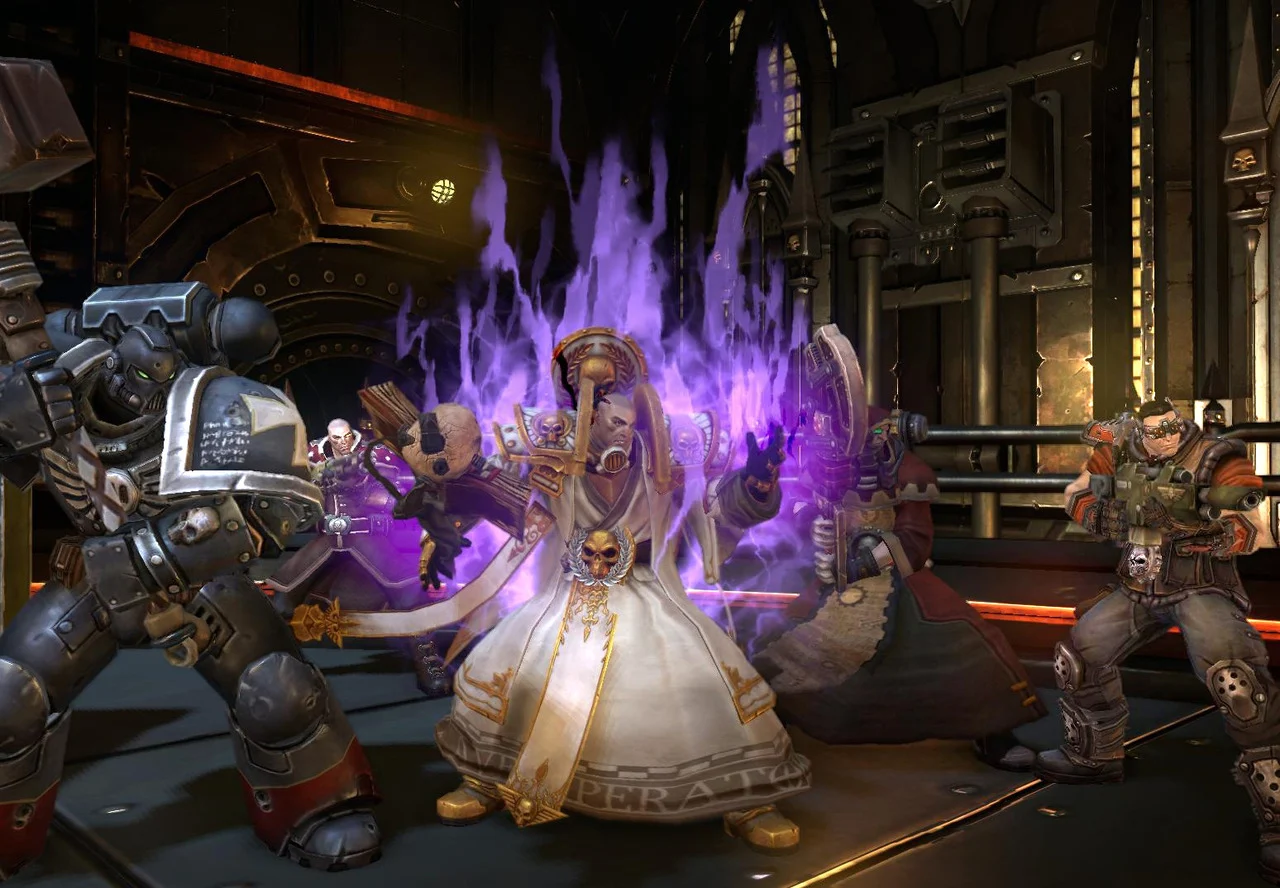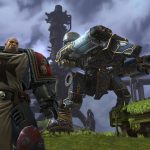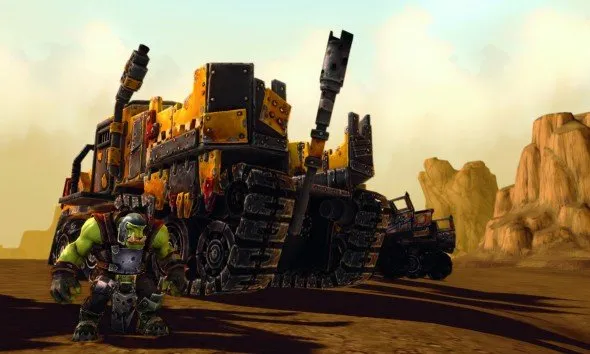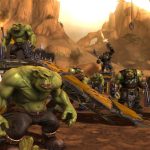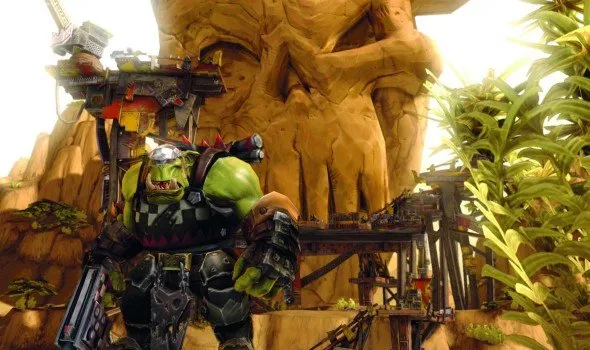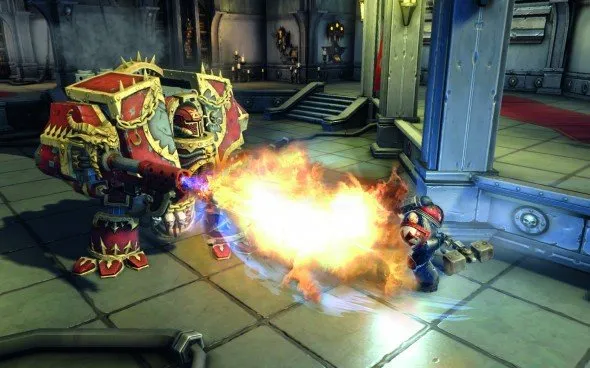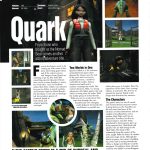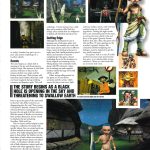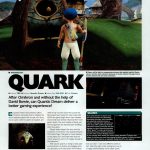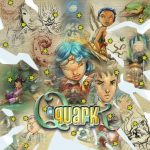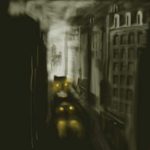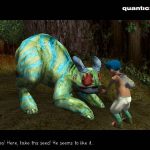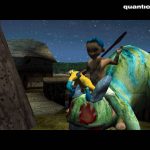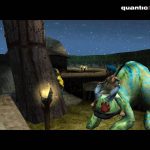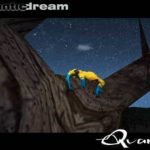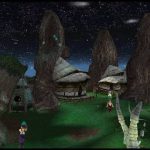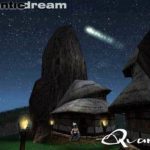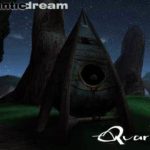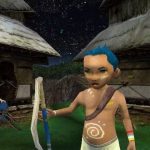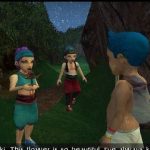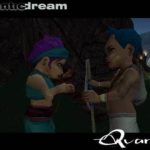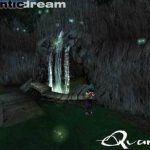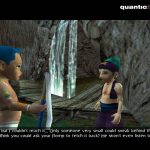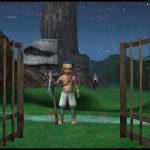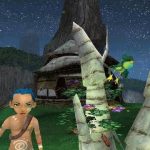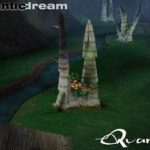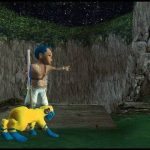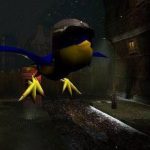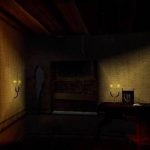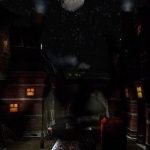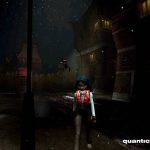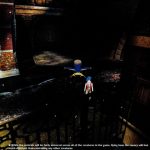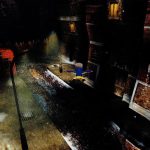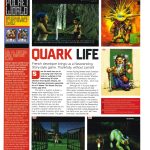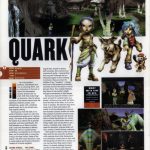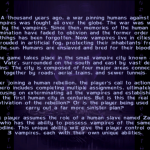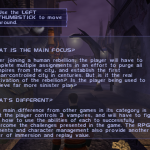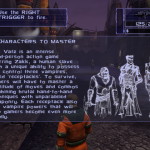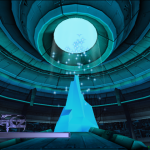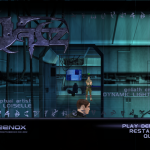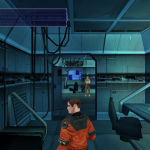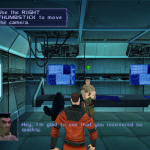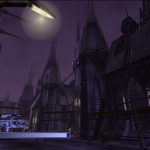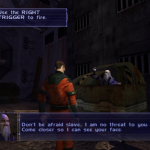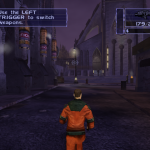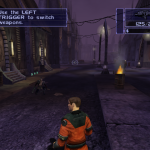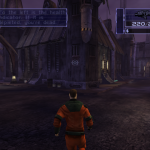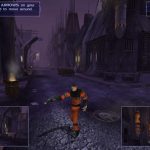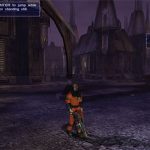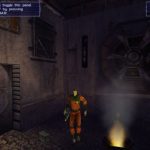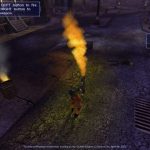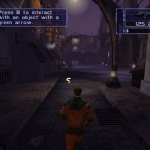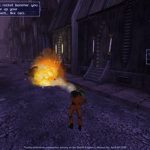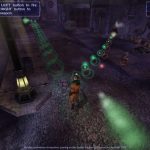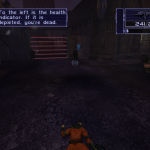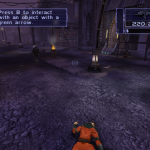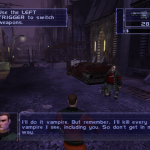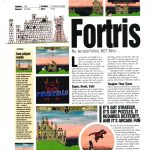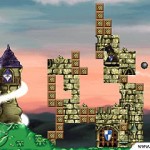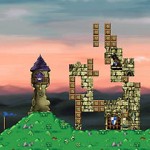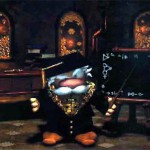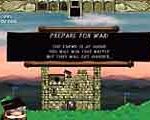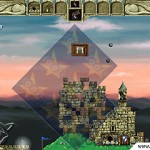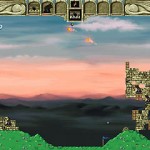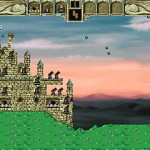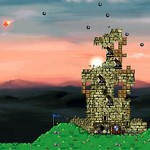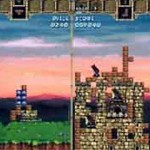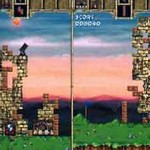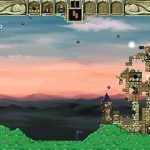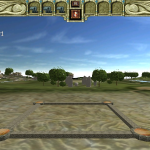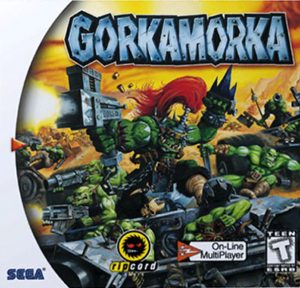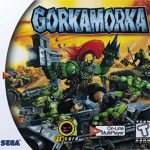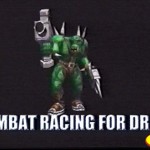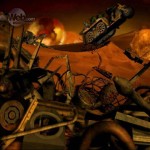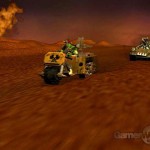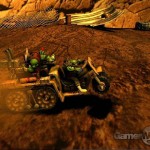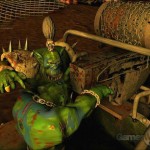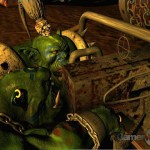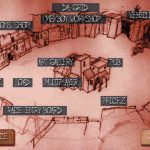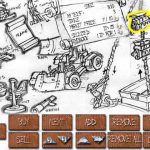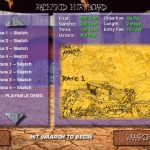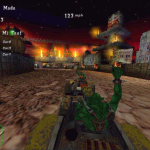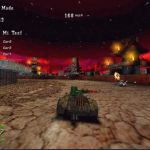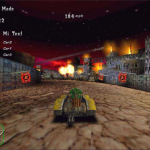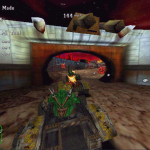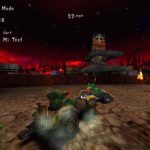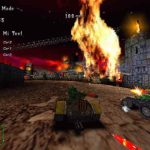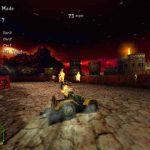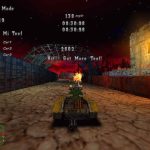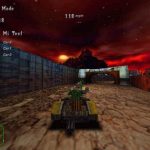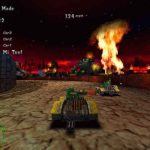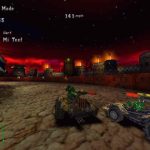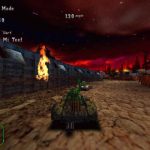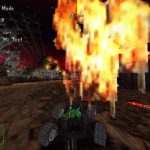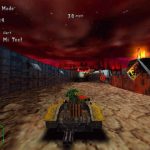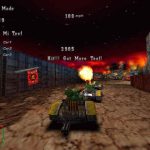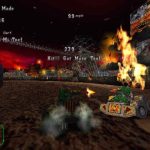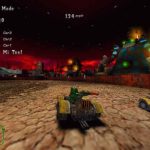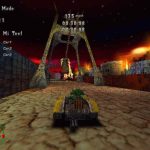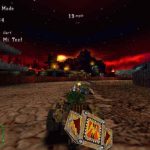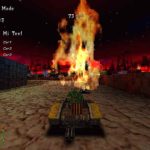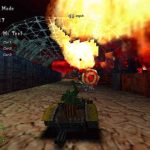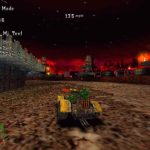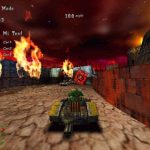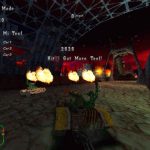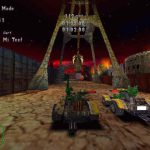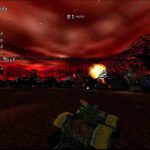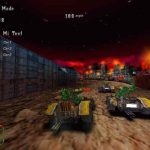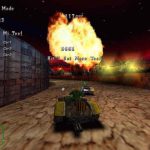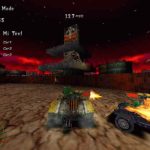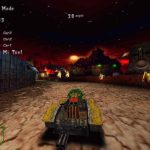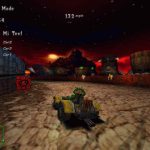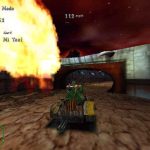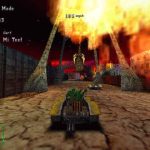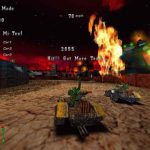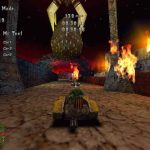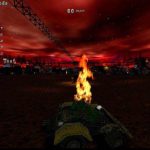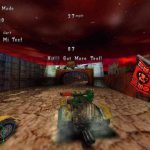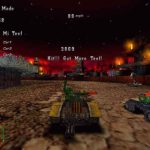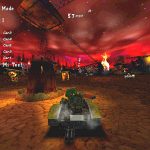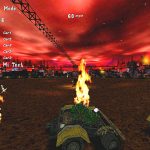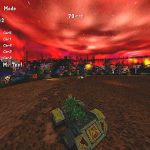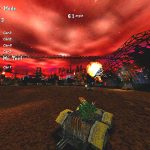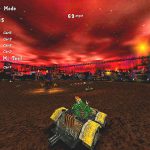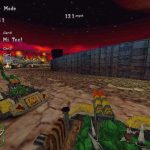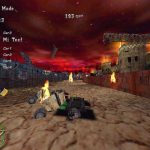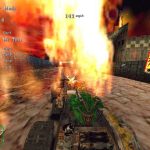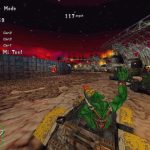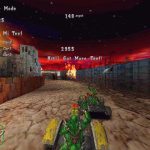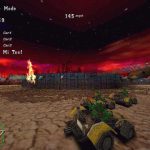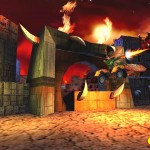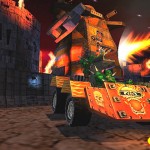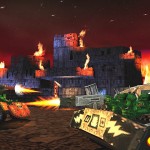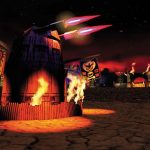Warhammer 40,000: Dark Millennium Online (formerly known as Warhammer 40,000: Ultima Segmentum) is a cancelled Massively Multiplayer Online Role-Playing Game developed from 2007 to 2012 by Vigil Games and published by THQ, exclusively for PC. It was based on the miniature wargame of the same name.
Originally announced in March 2007 by Eurogamer, some details were shared in May 2008 by PC Gamer, while interviewing Joe Madureira and David Adams:
DA: The fact that Warhammer 40,000 is science fiction and not fantasy goes a long way to distinguish the game from other Fantasy MMOs, such as Warhammer. Besides the obvious visual differences, the setting also affects many aspects of the gameplay.
First off, unlike a fantasy MMO, guns play a major role in the dynamic of combat. The gameplay will be much more intense, focusing a lot on fire-fights, tactics, cover and general brutality.
Secondly, the sheer scale of Warhammer 40,000 lends itself to experiences players have never seen in an MMO. The term “Battleground” takes on an entirely different meaning. Our battlegrounds will be more epic in scale, more intense, and more true to a game with the tagline, “In the grim darkness of the future, there is only war.” This doesn’t preclude the more intimate battlegrounds that other MMOs have, only that we will also be including more grand affairs, that give a player the sense that they are immersed in an actual Warhammer 40,000 battle.
PCG: When is this game set in the 40k universe?
DA: The game is set in the 41st millennium, well after the Horus Heresy and more contemporary to the tabletop game.
PCG: The gameplay for the tabletop game focuses on squad combat and tactics. How are you translating these elements to an MMO?
DA: To preface, let me say that this game will be an RPG. That needs to be said, because when someone thinks of a Warhammer 40,000 MMO there is definitely some question as to the style of play: will it be an FPS, an RTS, or some other genre altogether? Relic has the RTS angle covered with the awesome Dawn of War series – we are making an RPG.
However, that doesn’t mean that aspects of the tabletop don’t influence the style of play we present to the player. As I mentioned earlier, just the inclusion of ranged weapons as a dominant form of combat changes the basic underlying mechanics of a typical MMO. This leads to similar tactics that you might employ in the tabletop, such as cover, suppression fire, flanking, etc… If you think about it, “Group” is a just another way of saying “Squad”.
PCG: How many different races are playable?
DA: We aren’t ready to release a full list just yet. Rest assured, all of the races important to Warhammer 40,000 lore (not to mention the fans) will be represented. We want each and every race to have weight in the game world, and feel distinct. We won’t include a race if we can’t do them justice.
PCG: What kinds of NPCs will the player encounter?
DA: We want to build a Warhammer 40,000 world that extends beyond the battlefield. This will involve cities (of all scales, types and sizes), exotic alien temples, Chaos shrines, deserted battlefields, mysterious ruins, ancient structures, drifting hulks in space, etc… Warhammer 40,000 is a universe filled with mystery – where the unknown lurks around every corner, ready to kill you. (…)
As for NPCs, all these fantastic locations will be brought to life with a wide range of NPCs: Imperial citizens, Chaos sycophants, xenos (40k for alien), Daemons from the warp, Eldar craftsman, oge raders, ancient killing machines, etc… I could go on forever.The point is, the game will be filled with NPCs both ready to help you and kill you.
PCG: What kind of missions can the player look forward to playing solo or with parties?
JM: We’ll have a large number of solo, party, and PvP missions. We are not going to try to force grouping, as some games have tried to do – that’s just annoying. MMORPGs are about giving the player options, and that means letting them play the game how they want to. Though, while it will be possible to solo for the life of your character, you’re definitely going to want some buddies watching your back in some of the missions, especially the PvP ones. Yes – there will be PvP and bloodshed.
The game was officially revealed at E3 2010 with a trailer and some more details:
We hadn’t heard much about Vigil Games’ Warhammer 40,000: Dark Millennium Online at all since it was initially announced, but at E3 2010 we got a glimpse of the game in trailer form. On the show floor, we caught up with Vigil’s Joe Madureira to try and get a few extra details.
Unfortunately not much is being discussed at this point, so it sounds like the game is still pretty far off. Madureira traced the history of the game up to its current state. “We started a couple years back, we heard that THQ had the license of a Warhammer 40,000 MMO and we were like, woah, we have to do that. We can’t let any other studio do this. We have a lot of fans at the studio and we were all over it. Luckily Darksiders was looking pretty cool at the time and THQ agreed that we would do a good job on it. It uses a modified version of the Darksiders engine, which is one of the reasons it looks so good for an MMO.” He wasn’t willing to give a release date.
One thing you can tell from the trailer is that you’ll be fighting on foot and within vehicles, as Warhammer fans would expect. On the style of play, Madureira said “We want MMO players to be familiar with it because we want that accessibility. But obviously because of the race, weapons and vehicles and things like that, the back-and-forth trading blows kind of thing just doesn’t work very well for this [intellectual property]. There’s definitely a little bit more of an action vibe.” Specifics regarding combat were not given out. (…)
The overall structure of the game, we’re told, will be familiar to MMO gamers. “You’re going to have quests, you’re going to go out and kill stuff, you’re going to group up, you’re going to join larger scale battles. It’s structured very much like a traditional MMO. I think the Dawn of War series does an amazing job with tactical, squad-based stuff, [Relic’s console-based action game] Space Marine is an awesome, visceral action adventure like one dude kicking ass. For us it’s really more of an RPG. You’re living the life of this dude not for the life of a console adventure but for hopefully months and maybe even years. What do these guys do off the battlefield? What are their interactions like with other races and in various worlds? It really gives you a unique perspective because it’s a hero in that universe, not just a unit.”
After another trailer shared at GamesCom 2010, the title will not resurfaced until January 2012 when rumors about its cancellation were spread. THQ quickly denied this, as we can read on Gamesindustry:
Saints Row publisher THQ has shelved all projects scheduled for release in 2014 and has cancelled Vigil-developed MMO Warhammer 40,000: Dark Millennium Online.
That’s according to games exec Kevin Dent, who suggests that the publisher is ultimately looking for a sale to save the troubled business.
Sources speaking to GamesIndustry.biz have suggested Dark Millennium Online, which was first announced in 2007, is currently being offered for sale to other companies. (…)
Industry chatter suggests THQ is looking for a sale. The company has a market cap of just over $45 million – trading in the company was at a new low on Friday of $0.65. CVs for established talent at the company are said to be increasing in the recruitment market. (…)
Update: THQ has denied the latest rumours and stated that there has been no decision made on the future of Dark Millennium Online.
In a statement given to press today, the company said: “THQ has not cancelled its 2014 line-up, and has not made any decisions regarding the planned MMO.”
“As part of the ongoing review of our business, we have made decisions to ensure that the company is strategically addressing the most attractive markets. As we have previously announced, we have dramatically reduced our commitment to the kids’ boxed games sector which leads to a significantly more focused release schedule moving forward.
“Our slate for calendar 2012 and beyond is focused on high-quality core games and continues to build our digital platform and business. We are excited for our pipeline of original and high-quality content along with our relationships with some of the best talent in the industry.”
Two months later, THQ decided to refocus the development of the project by dropping the Massively Mutliplayer Online part, according to Eurogamer:
THQ has “refocused” troubled MMO Warhammer 40,000: Dark Millenium. It’s now an “immersive single player and online multiplayer experience”, the publisher has announced.
Rumours circulated earlier this year that the game had been cancelled before THQ revealed it was looking for a business partner to help carry through its original vision for the title.
However, it’s now confirmed that the game’s scope is being scaled back and it’s going in a new direction.
“As previously announced, we have been actively looking for a business partner for the game as an MMO,” explained THQ CEO Brian Farrell.
“However, based on changing market dynamics and the additional investment required to complete the game as an MMO, we believe the right direction for us is to shift the title from an MMO to a premium experience with single and multiplayer gameplay, robust digital content and community features.
“Because we believe strongly in the high-quality and vast creative work that is in production, this is the right decision for both our portfolio and for gamers devoted to this powerful property.” (…)
As a result of the downsizing, a number of development staff have been laid off – 79 full-time employees at Vigil Games and 39 employees at Relic Entertainment.
Unfortunately, the game is claimed to be dead in December 2012 when THQ filed for bankruptcy. Kotaku was the first to detail those information:
When THQ filed for bankruptcy yesterday, they were very candid about their plans and even released a document with a chart on all of their upcoming games. That chart did not mention Warhammer: 40,000: Dark Millenium, a game that was supposed to be developed by a studio called Vigil (the company behind Darksiders). Earlier this year, THQ had announced that they were canceling the multiplayer elements of Dark Millenium and turning it into a single-player game.
I reached out to THQ’s PR folks for clarification. The resulting exchange was rather… baffling. I’ll post the whole thing so you can see for yourselves.
KOTAKU: Is Warhammer: 40,000: Dark Millenium still in production at Vigil?
PR: Development of that title ceased a while ago and that was announced in March 2012. No details of future titles from Vigil have been released at this time.
KOTAKU: In March, THQ announced that Warhammer: 40,000: Dark Millenium would be turned into a single-player game, not that development had ceased.
As [THQ CEO] Brian Farrell wrote in a press release at the time: “As previously announced, we have been actively looking for a business partner for the game as an MMO. However, based on changing market dynamics and the additional investment required to complete the game as an MMO, we believe the right direction for us is to shift the title from an MMO to a premium experience with single and multiplayer gameplay, robust digital content and community features.”
Are you telling me that wasn’t true? Development ceased entirely?
PR: Development of the DMO ceased, and beyond that we haven’t provided any updates on the status of the game or made any announcements of Vigil’s next project(s). We don’t have anything more to share at this point.
KOTAKU: Wait, didn’t you just tell me that development of the title ceased?
PR: I apologize, to clarify, development of the DMO ceased.
At this point, the PR representative CCed a second, internal THQ PR representative.
KOTAKU: What does DMO stand for?
THQ PR: Dark Millennium Online, our cancelled MMO.
KOTAKU: OK, so you’re saying the game was cancelled, not turned into a single-player game?
I just want to get this as clear as possible so our readers understand what’s going on and know whether or not to expect a single-player Dark Millenium game coming from Vigil at any point in the future.
THQ PR: I’m saying we have made any announcements about what the resulting game would be, if any. There’s nothing to share until Vigil is ready to announce its next project.
So what does this mean for the future of Warhammer: 40,000: Dark Millenium? My guess: nothing good. THQ’s bankruptcy filing documents say that Vigil is currently working on a game codenamed “Crawler.” We have no idea whether that’s referring to any sort of Warhammer game.
Vigil Games was shutdown a month later, after THQ didn’t manage to secure a new buyer for the company and their project codenamed Crawler during the auction, burying all chances of release for Warhammer 40,000: Dark Millennium.
In March 2014, VG24/7 got an interview of former THQ’s CEO Danny Bilson, speaking of various released and cancelled projects during the final years of the publisher. Many details about Dark Millennium were shared:
Vigil Games’ ill-fated Warhammer 40K MMO was in the works for about 18 months before Bilson joined THQ, he said. The executive was “a big supporter” of the project, which was a passion project led by former NCSoft staffer David Adams, and which Bilson told us was “really, really exciting”.
Unfortunately, the project kept going on the backburner, first for Darksiders and later for its sequel. But, Bilson said, by the time Darksiders 2 shipped Dark Millennium Online was “well on its way”.
“What happened was, in December of 2011 is sort of when the wheels came off for THQ, and there was a tremendous loss of money in the uDraw situation as well as some tough releases during that year. By the end of the year we had to make cuts,” he said.
Two factors contributed to DMO’s demise. The first is that MMO’s are tremendously expensive to develop. The second is that the MMO business had changed during the years of DMO’s incubation.
“I wanted to see what was happening with MMOs, because it was taking years to make and I was kind of anxiously waiting to see what would happen with the Star Wars MMO at EA, to see if the subscription model is over, or whether it would still work,” Bilson said.
THQ had been toying with several business models for the project but when Star Wars: The Old Republic “wasn’t instantly doing huge numbers and building towards World of Warcraft“, the publisher decided to pull out of the MMO space.
“We knew that weren’t going to be able to go subscription, and then we lost a ton of cash that year. There was no way we could gamble on the big bet like an MMO,” Bilson mourned.
Vigil wasn’t ready to give up; THQ announced the project was to be reworked as a multiplayer RPG.
“I think we were calling it Inquisitor; I can’t remember for sure. They started to design a game that was going to either be free-to-play or pretty low priced point of entry, that was basically going to be a digital PC title with lots of add-on content,” Bilson said.
“We were going to take some of the great stuff they had and redesign it. I remember some things that I really loved, like each player would have their own capital ship and your friends could have quarters on it. You collected all your stuff from your adventures on your ship, and you could customise it.
“Dark Millennium Online became much more like a Borderlands kind of game. It was a four-player co-op jump-in jump out, go on these missions with your friends. I was really excited about that. We felt we could finish that game and ship it within that year, which would have been summer of 2013. It would have been last summer.”
But in the last month of Bilson’s time at THQ, he found himself at loggerheads with some of his colleagues, who wanted the project to be scrapped altogether.
“They felt like, ‘Well, we wrote it off; we cancelled the game; we wrote off the investment; we don’t wanna invest any more in it.’ We had some really heated conversations over it. But ultimately I respectfully did what my boss and some of my partners wanted which was to let it go completely,” he said.
“There was a lot of game let go there that was pretty great. The combat system was really fun; it was fast, it was exciting. The art was really great, the world was coming along. I thought it had tremendous potential.
“I was really disappointed when that second iteration that we were calling Inquisitor got cancelled. That was on a Friday, and Monday – I believe the next work day – I left THQ.”
Bilson’s regret was almost palpable, but he admitted that the project just “didn’t make sense” as an expensive MMO.
“I think that business was over, but I thought the refactoring of it did make sense and that was what I was disappointed about. I think that we, as a team, probably held on to that longer than we should have,” he said.
“In the state that we were in, if that could really hit, it could change the company. Our models weren’t crazy, it had to just work and it could really have helped our company. Brian Farrell and myself and some of the other execs probably held on to that longer than we should in the hopes that it would be a big hit for us.
“But what the team built down in Austin was really exciting and I was very inspired by it. During the whole four and a half years I was there I felt the content they were building was really excellent.”
Since then, the Warhammer 40,000 license was used in other video games. The last one to date being Warhammer 40,000: Space Marine 2, released in September 2024.
Videos:
Images:

